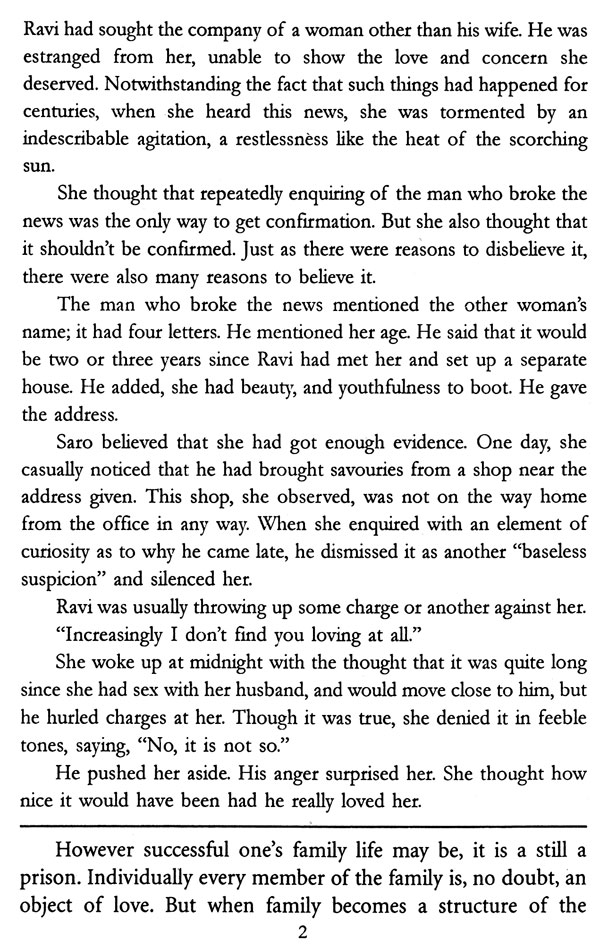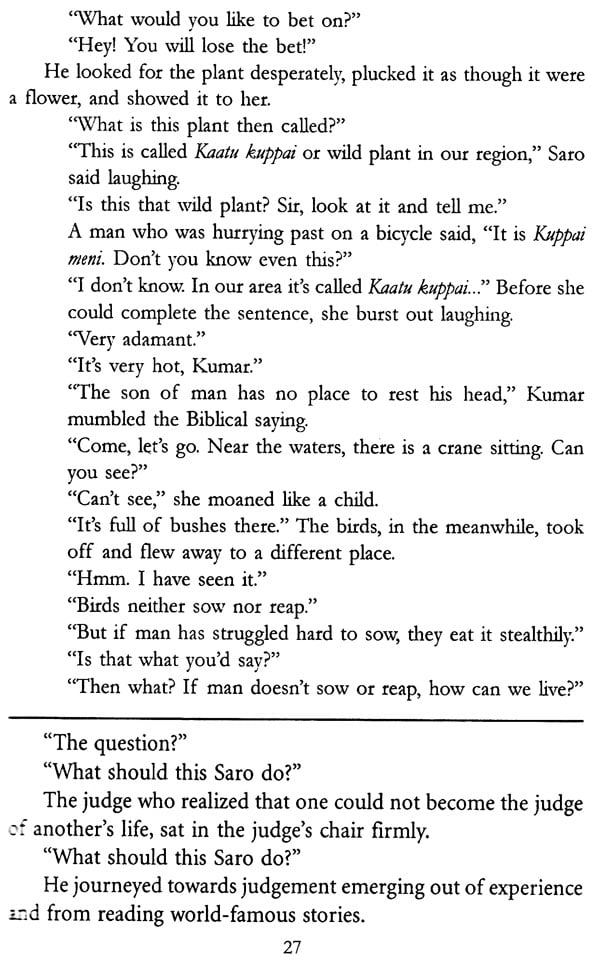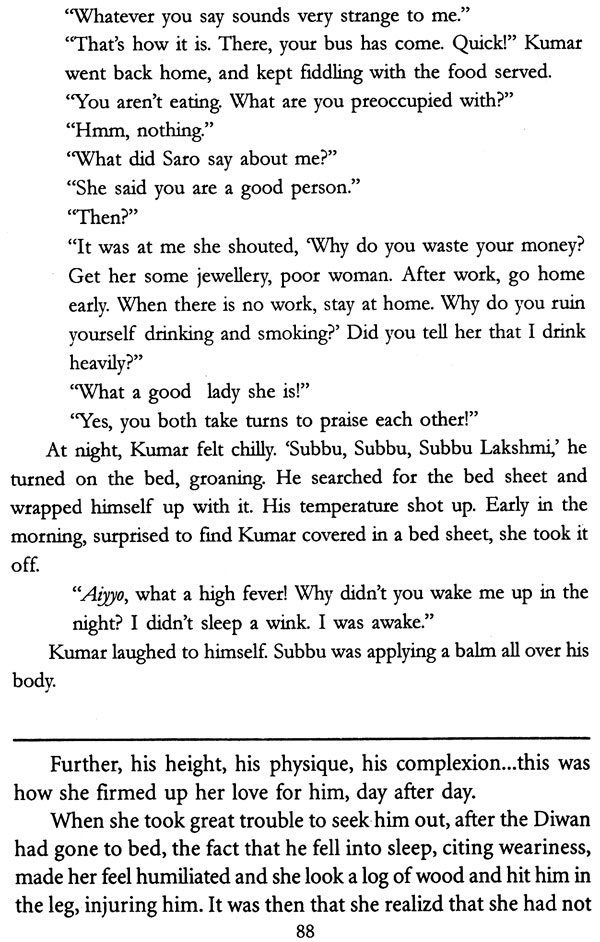
Cross Section (Kurukku Vettu)
Book Specification
| Item Code: | NAR070 |
| Author: | P.Sivakami |
| Publisher: | SAHITYA AKADEMI, DELHI |
| Language: | English |
| Edition: | 2014 |
| ISBN: | 9788126042456 |
| Pages: | 160 |
| Cover: | PAPERBACK |
| Other Details | 8.50 X 5.50 inch |
| Weight | 220 gm |
Book Description
Cross Section (KurukkuVettu) is a well-known fictional work in Tamil. The metafictional subtext running at the bottom of each page throughout the novel, creates a critical space in which the author examines the problems of representing female sensitivity, female desire, ideological control of the narrator - in short, a self-reflexive exercise articulating the theoretical issues in narration and reorientation of feminist/female experience in the post-feminist era. The novel may read like a popular representation of women's common dilemmas but at the core of the novel is, however, a search for a space for expression of woman's five spirit. Sivakami has very deftly made an attempt to probe that space by juxtaposing the text and the subtext.
P. Sivakami (b.1957) is the author of four critically acclaimed novels. Her novel Pathayana Kathithalum has been translated into English by the author herself under the title Grip of Change. Her second novel Anandayee is soon to be published in English translation. Sivakami's first collection of poems was published in 2011 under the title Kadhavadaippu. She edits a monthly journal Pudhiya Kodangi since 1995. Widely travelled, by virtue of her being a civil servant, her experiences find a way in her works.
C. T. India taught in the Department of English, University of Madras, She has translated Indira Parthasarathy, Ambai, Ashokamitran and Sivakami among others. She is a recipient of the Katha Award for translating Ambai's Deer in the Forest. Her other translations include Indira Parthasarathy's The Legend of Nandan and Ramanujar (in collaboration with T. Srimmana).
Prema Jagannathan taught English at the Stella Maris College, Chennai. She is the author of The Mahabharata and Contemporary Indian Fiction and has translated several short stories, plays and non-fictional works from Tamil to English and vice-versa. She is currently academic consultant for Orient Blackswan, Chennai.
This novel in Tamil is by a leading woman writer P.Sivakami who has sensitively portrayed in her writings the plight of Dalit women as Well as women in patriarchal society in general. Here the story is about a middle-class working woman Sara who finds herself drawn to a man Kum., something which puts her on the horns of dilemma between her loyalty to her husband and children and her feeling of deep love for a man outside the fold of marriage. The singular feature of this fictional work is not so much the rather familiar love-triangle and its trauma, but the metafictional subtext running at the bottom of each page, throughout the novel, creating a critical space in which the author examines the problems of representing female sensitivity, female desire, ideological control of the narrator-in short, it is a self-reflexive exercise articulating the theoretical issues in narration and representation of the female experience in the post-feminist era. For ma purpose, The author re-deploys the popular Indian tale of Vikramaditya and the corpse he carries on his shoulder. Vikrarnaditya's predicament is such that he has to keep listening to the tales spun out by the character designated as 'Vetalam'. At the end of each story, the Vetalam asks a question and Vikramaditya must give the right answer, or else, the Vetalam threatens him, he would meet with dire consequences. Sivakami appropriates this legend critically to serve her feminist purpose. Vikramaditya, then, becomes a silent critic of traditional realism and morality which the Vetalam follows here, and he is hence an ally of the woman writer. The victim situation of being condemned to accept received modes challenges Vikramaditya's narrative resources and his power of invention. Sivakami cleverly intertextualises this mythical archetype to represent die dilemma of woman writers in Indian society. The novel may read like a populon representation of women's common dilemmas and their disgruntlement within the cultural structures of the establishment. At the core of the writing is, however, a search foes space to express a woman's free spirit. Sivakami makes an attempt to probe that space by juxtaposing the toot and the subtext.
**Contents and Sample Pages**











